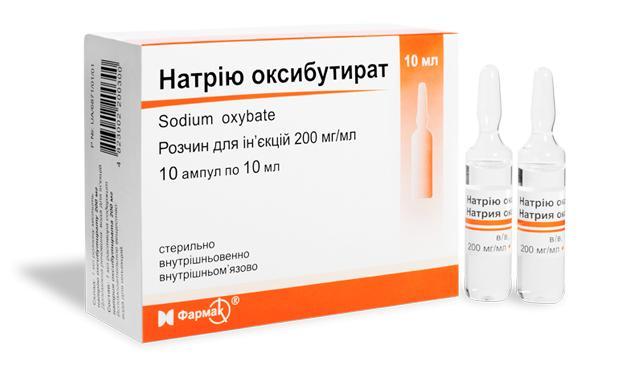
Sodium oxybutyrate (OH), like ketamine, is a drug for non-inhalation anesthesia in surgery, obstetrics and gynecology. It is also traditionally used in psychiatric and neurological practice for the treatment of intoxications and traumatic lesions of the central nervous system.
According to the chemical structure, OH is the sodium salt of gamma-hydroxybutyric acid, and in terms of pharmacological properties it is close to gamma-aminobutyric acid (GABA), the main inhibitory mediator of the central nervous system. Therefore, the drug has nootropic (neurostimulating) properties and exhibits sedative, hypnotic, analgesic and muscle relaxing effects. OH also activates oxidative processes in cells, protects against the effects of radiation and enhances the body's resistance, including to hypoxia. OH significantly reduces the level of cholesterol in the blood, which can be useful in the fight against atherosclerosis, increases blood flow in the abdominal cavity.
Abroad, this drug is often used as a general anesthetic, for the treatment of narcolepsy (daytime sleepiness), in obstetrics (intensifies contractions, promotes cervical dilation), for the treatment of alcoholism and withdrawal symptoms, as well as for various other purposes.
Recently, OH has also been found to be a safe and promising treatment for several diseases such as essential tremor, chronic headache, sleep disorders, and eating disorders. The effectiveness of the drug was found in acute psychotic states and neuroses, combined with depression, in anxiety disorders. As a result of the course of treatment, patients become calmer, more contact, psychotherapy is facilitated. A positive effect was obtained in patients who had previously been unsuccessfully treated with antipsychotics and antidepressants.
Sodium hydroxybutyrate is also increasingly being used to treat fibromyalgia, where it reduces pain and chronic fatigue and can significantly improve sleep quality.
The effectiveness of the drug in the treatment of alcohol and food addiction is shown. It helps to reduce episodes of abuse, the number of obsessive-compulsive symptoms, food addiction, and leads to a decrease in body mass index.
Most people report that the use of the drug in small doses causes a pleasant feeling of relaxation and calmness. Serenity, sensuality, mild euphoria, talkativeness, playfulness are often felt, mood improves. Anxiety and tension dissolve into a feeling of emotional warmth, well-being and relaxation. Sensitivity to touch increases, libido increases. OH does not have the hangover effect associated with alcohol and some tranquilizers - on the contrary, many report a surge of freshness and energy 10-15 hours after the procedure.
High doses of the drug induce sleep. At the same time, falling asleep is pleasant and easy, and sleep is very full, refreshing, giving strength.
OH has extremely low toxicity. It is completely processed in the body to water and carbon dioxide, leaving no toxic metabolites behind. In some people, large doses may cause short-term nausea.
Although OH does not cause chemical dependence, with prolonged uncontrolled use it can lead to psychological dependence. Therefore, the drug belongs to narcotic substances of strict accounting. With controlled, short-term clinical use, any negative effects and consequences are excluded.
Therefore, infusion therapy with sodium oxybutyrate (drip administration for 40-50 minutes) is a highly effective tool in the treatment of mental disorders and psychosomatic diseases, especially those associated with overexertion of the body and pain syndromes.
